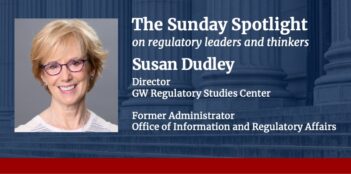
Despite some Republican candidate promises, reinstating a ban on gays in the military would be hard to do.
Next Tuesday, the U.S. military ban on openly gay personnel will come to an end. Or will it? With at least one Republican presidential candidate – Michele Bachmann – campaigning to reinstate the military’s repealed “Don’t Ask, Don’t Tell” (DADT) policy on gay personnel, could a future President bring back the policy through regulations that would not require congressional approval?
The Don’t Ask Don’t Tell Repeal Act (Repeal Act) does not require the military to accept openly gay service persons. Instead, the Repeal Act authorizes the military to repeal the DADT policy upon, among other conditions, the promulgation of regulations written by the Department of Defense (DOD). Upon certifying the promulgation of the DOD regulations and the completion of the other conditions earlier this summer, President Obama has announced that DADT will end next Tuesday.
Some policy observers now worry that a future administration could undermine this repeal by simply instructing the DOD to issue new regulations that reinstate the DADT policy.
However, any such future DADT regulations may not withstand judicial scrutiny for two reasons. First, the Repeal Act could be construed by courts only to authorize the repeal of DADT, not its reinstatement after repeal. The Repeal Act states only that statutory DADT provisions “shall remain in effect until such time” as the regulations are passed and other certifications are made by the President and military officials. Once these conditions are met, the DADT statutory provisions are no longer “in effect” and arguably could only be reinstated through the enactment of new legislation.
Second, the Supreme Court’s 1983 decision in Motor Vehicle Manufacturer’s Association v. State Farm held that an agency needs to base its regulations on policy reasons, not on politics. In State Farm, the Court reviewed a decision by the Reagan Administration’s National Highway Safety and Transportation Administration (NHTSA) to rescind a rule promulgated during the Carter Administration that cars be built with airbags or automatic safety belts. The Court found the Reagan NHTSA’s rescission to be arbitrary and capricious because that the agency had not adequately analyzed its decision and provided thorough reasons for getting rid of the existing rule. Although Justice Rehnquist argued in dissent that a change in presidential administration can provide an adequate basis for altering administrative rules, the Court’s majority rejected this view.
Of course, the parallels between State Farm and potential DADT reinstatement are not perfect. The State Farm case dealt with a domestic policy issue, not a matter of military personnel. But the general principles of State Farm, combined with questions over whether the Repeal Act would authorize a unilateral reinstatement of the ban, suggest it will be much harder for a future President to undo the repeal of DADT than Michele Bachmann might want her supporters to believe. If a future administration were to try to reinstate the DADT policy on its own, it would almost certainly face scrutiny in the courts and ultimately could be forced to seek congressional approval for such a change.



